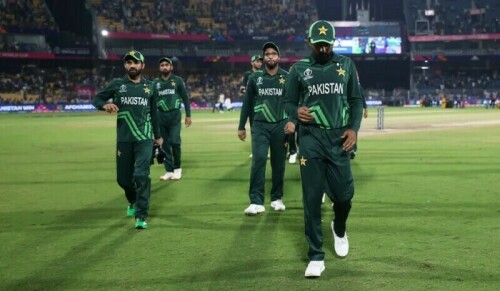SAO PAULO: A feared organized crime syndicate based in Brazil has threatened to launch terror-style attacks during the World Cup and presidential elections next year, a daily newspaper reported Tuesday.
The so-called First Command of the Capital gang, which is led from inside prisons in Sao Paulo state, vowed to unleash a “World Cup of terror” if its chiefs are transferred and isolated in other jails, the report said.
The O Estado de Sao Paulo daily's story followed its revelation last week of details of an extensive report by prosecutors on the activities of the group, which is better known by its shortened moniker, the PCC.
“The threats extend to 2014, when they are promising a 'World Cup of terror' and attacks during the presidential elections,” it warned. The World Cup, the first in Brazil since 1950, kicks off in Sao Paulo next June.
However, the commander of Sao Paulo state's military police, Colonel Benedito Meira, told AFP that while some criminals have been wiretapped discussing the World Cup, there was no intelligence report of a “real threat” during a sporting event.
“There is no need to be alarmist. One needs to see when the (wiretapped) comments were made, in what context,” he said, adding that police have been conducting various simulation scenarios to be better prepared for all types of security threats during the football extravaganza.
The PCC, as described in the prosecutors' report, is a huge organization with separate divisions to coordinate the drug trade, commit crimes, provide legal defense to its members and manage its finances.
The syndicate, which has more than 11,000 members, including 6,000 behind bars, also operates in Paraguay and Bolivia, it added.
The prosecutors called for 175 PCC members who are currently free to be incarcerated. They are also demanding tougher jail conditions for 32 others currently held, including the entire leadership, in Presidente Venceslau in Sao Paulo state.
The paper said the gang relies on a “board of directors” made up of criminals not in detention to run day-to-day operations.
The report grew out of more than three years of investigation and was based on documents, witnesses' testimonies and wiretaps.
The PCC was blamed for a wave of violence that left more than 300 people dead, including some police officers, late last year.
In 2006, the gang also went on a rampage in Sao Paulo, attacking police stations and public buildings.
According to human rights groups, the PCC assault, which triggered a wave of police reprisal attacks in which scores of suspects were gunned down, came in large part in response to a series of organized shakedowns by police.
The PCC was set up in 1993 by jailed drug traffickers in Sao Paulo.














































Dear visitor, the comments section is undergoing an overhaul and will return soon.